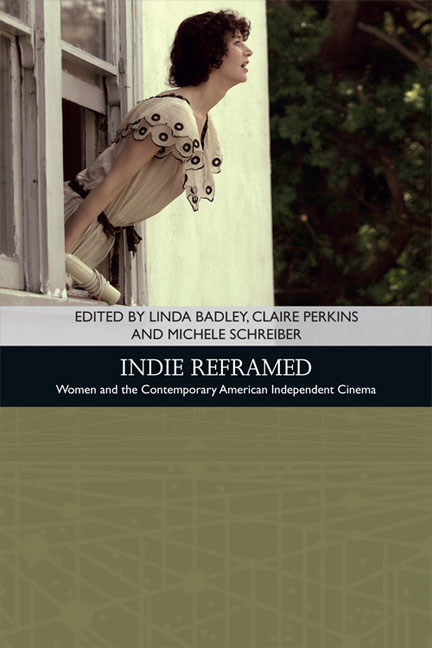Introduction
Published online by Cambridge University Press: 10 November 2020
Summary
REFRAMING INDIE
In April 2015 the tumblr account ‘Shit People Say to Women Directors’ debuted online and promptly went viral. Cataloguing anonymous stories of sexism and inequity encountered by female practitioners working on film sets around the world, the space was ‘designed for catharsis and to raise awareness about the barriers women face in the film industry’ and instantly identified some common themes in discrimination – named elsewhere by Mynette Louie, president of the female-focused Gamechanger Films, to include ‘the babysitting barrier’, ‘the mini-me problem’, ‘knee-jerk disrespect’ and ‘spotty solidarity’ (Louie 2015). The account reportedly received a year's worth of public content overnight and gained an immediate media profile through being featured in outlets such as Vanity Fair, The New York Times, Fortune Magazine, The Huffington Post, The Guardian, Mashable, Glamour Magazine and Cosmopolitan. While this reach and profile distinguishes it, the tumblr account is but one example of a wide range of initiatives, stories and projects that have sprung up in the industry and on social media and popular news sites over the past few years to highlight the plight of women practitioners working in moving images. From quizzes like BuzzFeed's ‘How Many Of These Movies by Female Directors Have You Seen?’ (Willmore 2014) and stories like Indiewire's ‘10 Female Directors Who Deserve More Attention From Hollywood’ (King 2014) to schemes like Meryl Streep's Writer's Lab – designed to nurture female screenwriters over the age of 40 – and Amy Schumer's popular ‘Last Fuckable Day’ sketch from Inside Amy Schumer (2013–), all expose the entrenched gender inequality of the filmmaking industry and aim to begin conversations on this problem and how to address it. They demonstrate how the labour and status of women in this environment is a vital issue for liberal feminism in the second decade of the twenty-first century.
At a specific level, these initiatives are authorised and inspired by the journalistic and academic activity of women like Manohla Dargis, Melissa Silverstein, Martha Lauzen and Stacy L. Smith. As chief film critic for The New York Times, Dargis routinely advocates for female filmmakers and representation in articles and reviews that identify phenomena such as ‘the new, post-female American cinema’ (Dargis 2008) and the ‘Director Gap’ (Dargis 2014a; Dargis 2014b; Dargis 2015), while Silverstein ‘educates, advocates and agitates for gender parity across the entertainment industry’ from her widely read ‘Women and Hollywood’ site.
Information
- Type
- Chapter
- Information
- Indie ReframedWomen's Filmmaking and Contemporary American Independent Cinema, pp. 1 - 20Publisher: Edinburgh University PressPrint publication year: 2017
